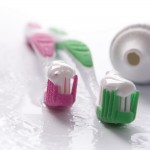
Tooth decay remains a significant public health problem with only small improvements in its incidence and prevalence in the past 20 years. Twice daily toothbrushing with a fluoride toothpaste has good evidence to support its effectiveness in reducing decay. However, the oral hygiene hypothesis proposes that removing the biofilm from tooth surfaces with toothbrushes or interproximal cleaning devices alone will also prevent caries. An alternate hypothesis posits that caries starts in microscopic cracks or crevices in teeth, and not on defect-free or sound enamel. Determining the effect of personal oral hygiene alone without the using of fluoride may provide support for these hypotheses.
The aim of this review was to assess the association between personal oral hygiene and coronal dental caries.
Methods
Searches were conducted in the PubMed, Web of Science and Cochrane Central Register of Controlled Trials databases. Randomised controlled trials (RCTs) of personal oral hygiene (defined as brushing of teeth with or without interproximal cleansing devices.) reporting caries at baseline and follow up and published in English were considered. Two reviewers independently extracted data and assessed study quality using the Jadad score and the Cochrane risk of bias tool. A random effect meta-analysis and explanatory analysis were conducted.
Results
- 3 RCTs involving a total of 743 patients were included.
- All 3 trials reported DMFS
- None of the trials were commercially funded.
- All 3 studies scored 4 on the Jadad score.
- Oral hygiene interventions did not influence the incidence of dental caries DMFS = −0.11; (95%CI; −0.91, 0.69).
Conclusions
The authors concluded: –
Personal oral hygiene in the absence of fluorides has failed to show a benefit in terms of reducing the incidence of dental caries.
Comments
The reviewers have searched 3 major databases although restricting the inclusions to English language studies only means that some relevant studies could have been excluded. A combination of the Jadad score and the Cochrane risk of bias tool has been used to assess the quality of the studies. The Jadad score is not recommended by Cochrane and while the 3 included RCTs score 4 out of 5 on the Jadad score there is a lack of clarity over both the random sequence generation and allocation concealment for all 3 RCTs.
Two Cochrane reviews (Marinho et al; Walsh et al) have clearly demonstrated the effectiveness of fluoride toothpaste in reducing caries with these and other reviews demonstrating that those brushing two or more times per day with fluoridated toothpaste have fewer carious lesions.
While this review suggests that brushing without the use of a fluoridated toothpaste does not reduce caries incidence the quality of the available evidence is not high. As the authors note, there may be some benefit in toothbrushing with non-fluoride paste. As the included studies were conducted in children it is possible that adults brushing with a non-fluoride might also benefit. Toothbrushing with a fluoridated toothpaste is an effective method of delivery fluoride and has good evidence to support for reducing caries. Other reviews also suggest a beneficial effect on gum health from regular toothbrushing.
Links
Primary Paper
Hujoel PP, Hujoel MLA, Kotsakis GA. Personal oral hygiene and dental caries: A systematic review of randomised controlled trials. Gerodontology. 2018 May 15.doi: 10.1111/ger.12331. [Epub ahead of print] PubMed PMID: 29766564.
Other references
Marinho VC, Higgins JP, Sheiham A, Logan S. Fluoride toothpastes for preventing dental caries in children and adolescents. Cochrane Database Syst Rev. 2003;(1):CD002278. Review. PubMed PMID: 12535435.
Walsh T, Worthington HV, Glenny AM, Appelbe P, Marinho VCC, Shi X. Fluoride toothpastes of different concentrations for preventing dental caries in children and adolescents. Cochrane Database of Systematic Reviews 2010, Issue 1. Art. No.: CD007868. DOI: 10.1002/14651858.CD007868.pub2
Dental Elf Toothbrushing blogs
